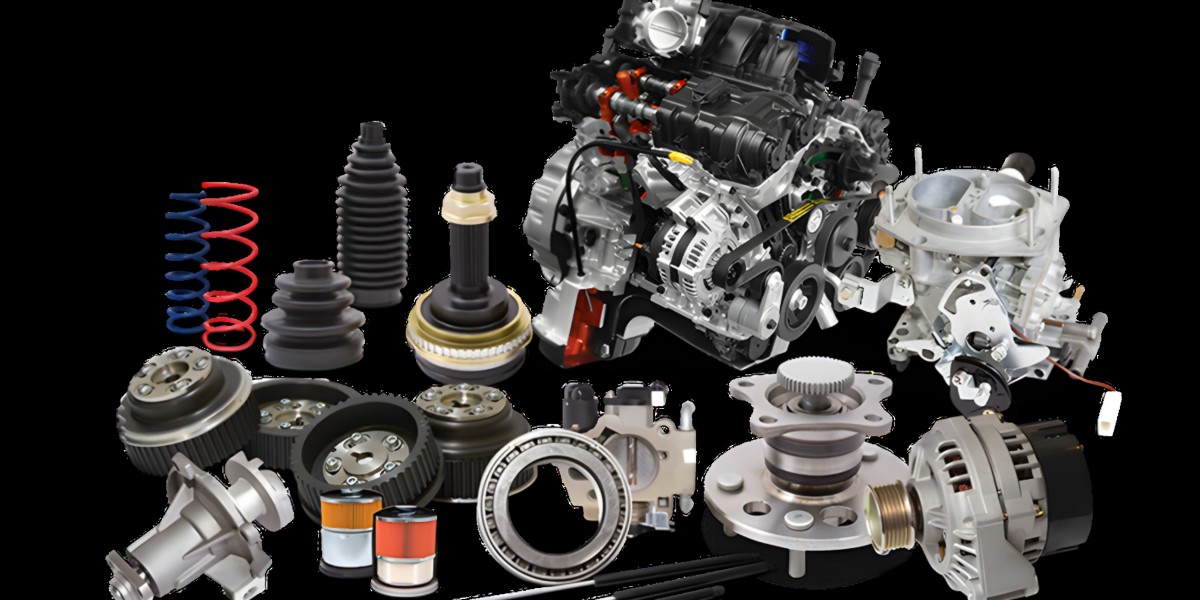The Comprehensive Guide to Motor Car Engines: Types, Features, and Maintenance
Introduction to Motor Car Engines
The motor car engine is the heart of any vehicle, transforming fuel into the power needed to drive. From compact city cars to high-performance sports models, the engine determines a car’s efficiency, performance, and reliability. With advancements in automotive technology, modern motor car engines range from traditional petrol and diesel powertrains to hybrid and electric systems, each offering unique benefits. For drivers in the United Kingdom and beyond, understanding motor car engines is essential when purchasing a new vehicle or replacing a failing engine.
This guide explores the types of motor car engines, their key features, common issues, and maintenance practices to ensure longevity. Whether you’re considering a used, reconditioned, or remanufactured engine for your vehicle, this article provides insights to help you make informed decisions and keep your car running smoothly.
What Is a Motor Car Engine?
A motor car engine is a complex mechanical system that converts fuel energy into mechanical power to propel a vehicle. Most engines operate on the internal combustion principle, burning fuel (petrol or diesel) within cylinders to drive pistons, which turn the crankshaft and ultimately power the wheels. Modern engines incorporate advanced technologies like turbocharging, direct injection, and hybrid systems to enhance efficiency and performance.
Engines vary in size, configuration, and fuel type, with common options including inline-four, V6, V8, and hybrid powertrains. Replacement engines—used (30,000 to 80,000 miles), reconditioned (rebuilt to OEM standards), or remanufactured (upgraded beyond OEM specifications)—are popular solutions for restoring vehicle performance at a lower cost than new engines.
Types of Motor Car Engines
Understanding the different types of motor car engines helps drivers choose the best option for their needs. Below are the primary categories:
1. Petrol Engines
Petrol engines, also known as gasoline engines, use spark ignition to combust fuel. They are common in passenger cars due to their smooth operation and responsiveness. Configurations include inline-four (e.g., Ford Focus 1.0L EcoBoost) and V6/V8 (e.g., BMW M5 4.4L V8). Petrol engines are ideal for performance-oriented vehicles but consume more fuel than diesel or hybrid options.
2. Diesel Engines
Diesel engines use compression ignition, offering superior fuel efficiency and torque. Found in vehicles like the Mercedes-Benz C-Class (2.0L OM654) or Volkswagen Passat (2.0L TDI), they are suited for long-distance driving and heavy-duty applications. Diesel engines are durable but may require more maintenance to address issues like carbon buildup.
3. Hybrid Engines
Hybrid engines combine an internal combustion engine (petrol or diesel) with an electric motor. Examples include Toyota’s 2.5L hybrid (A25A-FXS) in the Corolla and Prius. Hybrids offer excellent fuel economy (up to 50 mpg) and reduced emissions, making them eco-friendly choices for urban and highway driving.
4. Electric Motors
While not traditional combustion engines, electric motors power fully electric vehicles like the Tesla Model 3. They use battery-stored electricity to drive the wheels, offering zero emissions and low running costs. Electric motors are increasingly popular but are not typically available as replacement options in the same way as combustion engines.
5. Replacement Engine Options
When replacing a motor car engine, drivers can choose:
- Used Engines: Pre-owned engines with low mileage, costing £500 to £2,500.
- Reconditioned Engines: Rebuilt to OEM standards with new parts, priced at £1,500 to £5,000.
- Remanufactured Engines: Upgraded beyond OEM specifications, costing £3,000 to £8,000+.
Each type caters to different budgets and performance needs, with used engines being the most affordable and remanufactured engines offering enhanced durability.
Key Features of Modern Motor Car Engines
Modern motor car engines incorporate advanced technologies to improve performance, efficiency, and environmental impact. Key features include:
Turbocharging
Turbochargers increase power output by forcing extra air into the combustion chamber. Found in engines like the Ford 1.0L EcoBoost and Volkswagen 2.0L TSI, turbocharging boosts performance without sacrificing fuel economy.
Direct Injection
Direct injection delivers fuel directly into the combustion chamber, improving efficiency and power. Common in engines like the Mercedes-Benz 2.0L M264, it enhances fuel economy but may require maintenance to prevent carbon buildup.
Variable Valve Timing
Technologies like Honda’s VTEC and BMW’s Valvetronic adjust valve timing for optimal performance and efficiency across different RPMs. This feature improves responsiveness and fuel economy in engines like the Honda 2.0L K20C.
Hybrid Systems
Hybrid engines integrate electric motors to reduce fuel consumption and emissions. Toyota’s hybrid systems, for example, seamlessly switch between petrol and electric power, achieving up to 50 mpg in models like the RAV4.
Lightweight Materials
Modern engines use aluminum and composite materials to reduce weight, improving fuel efficiency and handling. For instance, BMW’s B58 inline-six uses aluminum components for a lighter, more efficient design.
Common Motor Car Engine Issues
Even the best engines can face issues if not maintained properly. Common problems include:
- Timing Chain/Belt Wear: Affects engines like the Volkswagen EA888, leading to misfires or engine failure if not replaced.
- Oil Leaks: Common in high-mileage engines, caused by worn gaskets or seals.
- Turbocharger Failures: Impacts turbocharged engines like the BMW B58, resulting in reduced power or smoke.
- Carbon Buildup: Affects direct-injection engines, reducing efficiency. Regular cleaning or fuel additives can mitigate this.
- Coolant Leaks: Common in older diesel engines, causing overheating if not addressed.
Reconditioned and remanufactured engines often address these issues with upgraded components, while proper maintenance prevents problems in used engines.
Factors to Consider When Choosing a Motor Car Engine
When selecting a new car or replacement engine, consider the following:
1. Driving Needs
Choose an engine that matches your driving habits. Performance enthusiasts may prefer petrol engines like the BMW B58, while commuters might opt for hybrids like the Toyota A25A-FXS for efficiency. Diesel engines suit long-distance drivers.
2. Budget
New engines can cost £10,000 to £40,000, while used engines (£500–£2,500) and reconditioned engines (£1,500–£5,000) are more affordable. Remanufactured engines (£3,000–£8,000) offer premium durability.
3. Reliability
Engines like the Toyota A25A-FXS and Honda K20C are known for low maintenance and long lifespans (200,000+ miles). Research potential issues, such as timing chain wear in older diesel engines.
4. Compatibility
For replacement engines, ensure the engine matches your vehicle’s make, model, and year. Using the Vehicle Identification Number (VIN) or registration number ensures precise compatibility.
5. Environmental Impact
Hybrid and diesel engines reduce emissions, while used and reconditioned engines minimize manufacturing waste, supporting sustainability.
Maintenance Tips for Motor Car Engine Longevity
Proper maintenance is critical to maximizing the lifespan of any motor car engine. Follow these tips:
1. Conduct an Initial Inspection
After installing a replacement engine, have a mechanic check for leaks, loose connections, or unusual noises to ensure proper integration.
2. Follow the Break-In Period
For the first 1,000 miles, avoid aggressive driving to allow components like pistons and bearings to settle. This is especially important for reconditioned and remanufactured engines.
3. Change Oil and Filters Regularly
Use manufacturer-recommended oil (e.g., 5W-30 for petrol engines) and change it every 5,000 to 7,000 miles. Replace the oil filter with each change to prevent sludge buildup.
4. Monitor Fluid Levels
Check coolant, transmission fluid, and brake fluid monthly to prevent overheating or component wear. Replace fluids as per the vehicle’s maintenance schedule.
5. Adhere to Maintenance Schedules
Replace air filters (every 12,000–15,000 miles), spark plugs (every 30,000–60,000 miles), and timing belts (every 60,000–100,000 miles) as recommended.
6. Address Warning Signs Promptly
Fix issues like warning lights, unusual noises, or reduced performance immediately to prevent further damage.
7. Use Quality Fuel
Use the recommended fuel type to optimize combustion and prevent carbon buildup. Consider fuel additives for direct-injection engines to maintain efficiency.
Benefits of Choosing Replacement Engines
When an engine fails, replacement options offer significant advantages:
- Cost Savings: Used engines save 60–80 percent, and reconditioned engines save 50–70 percent compared to new engines.
- Sustainability: Reusing engines reduces manufacturing waste and carbon emissions.
- Availability: Used and reconditioned engines are readily available, with warranties ranging from 30 days to three years.
- Reliability: Reconditioned and remanufactured engines are tested to meet or exceed OEM standards.
Conclusion
Motor car engines are the backbone of any vehicle, delivering the power, efficiency, and reliability drivers need. From petrol and diesel engines to hybrids, each type offers unique benefits for different driving needs. By understanding engine types, features, and maintenance requirements, you can choose the best option for your car, whether purchasing a new vehicle or replacing a failing engine. Used, reconditioned, and remanufactured engines provide cost-effective, sustainable solutions to keep your car running smoothly.
With proper maintenance—regular oil changes, fluid monitoring, and timely repairs—your motor car engine can deliver years of dependable performance. Whether you drive a compact hatchback or a luxury sedan, selecting a high-quality engine and maintaining it diligently ensures a rewarding driving experience.































